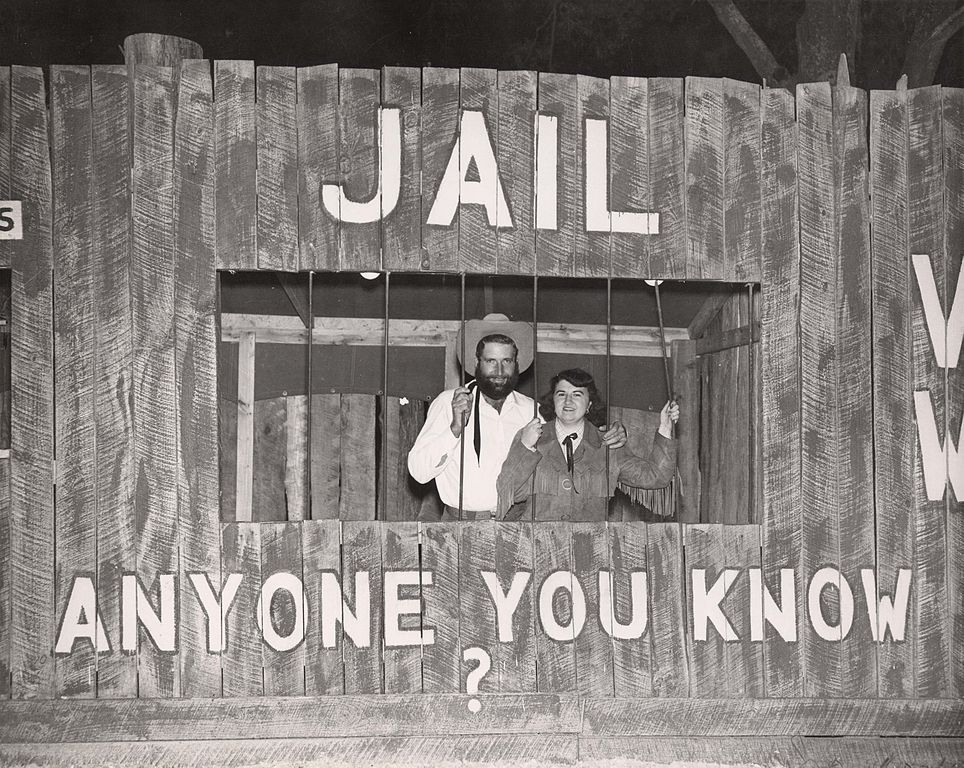In this blogpost, Haridya Iyengar, Student, Jindal Global Law School, Haryana, writes about the guidelines laid down by the Supreme Court for taking care of children of imprisoned parents.
This paper seeks to analyse the situation of children with incarcerated parents in India. It seeks to do this by – First, looking at the guidelines established for the safeguard of children in this situation. Second, taking into account reports of children in this situation.
Safeguards Established for Children in General
For the welfare and development of children, specific provisions have been made in part III and part IV of the constitution. The best interest of children had been one of the main consideration in the constitution. Apart from this, the government has also made special laws such as, Juvenile Justice Act 2000, Child Marriage Restraint Act 1929 and Child Labour Prohibition and Regulation Act 1986 to protect children.
India is also part of the International convention for child rights and has implemented various schemes and programs to reiterate its commitment to the cause of children. It also adopted a national charter in 2003 to provide for the health, growth and development of children and to promote the community in the fight against all forms of abuse against children.
Safeguards Established for Children Residing in Prisons
There are many children residing in prisons, not because of any delinquent activities but, because of incarcerated parents. This happens because they are either born there or have nobody to take care of them. Children with imprisoned parents are affected adversely.
In 2002 there was a study conducted by the National Institute of Criminology and Forensic Science which first brought to light the problems faced by these children. It showed that most children were deprived of their basic rights and had no one to take care of them. This severely affected the mental and physical development of these children.
This study was followed by a field action project by the Tata Institute of Social Science. The report revealed five major problems – Firstly, the prison environment hindered the growth and development of children. Secondly, most children never experience a normal family life. Thirdly, socializing patterns got severely affected due to the prison life. Fourthly, children were unsettled due to the constant transfer from one prison to another. Finally, the children in the prison showed violent and aggressive tendencies.
After taking into consideration various reports, affidavits and submissions, the Supreme Court laid down the following guidelines[1]:
- Children living with parents in prison should not be treated as a convict or under-trial. They should be entitled to food, shelter, medical facilities and other basic rights.
- When a female prisoner is found or suspected of pregnancy, she must be sent to the district government hospital for medical examination and delivery if required. Before sending a pregnant woman to jail, the authorities must make sure that the jail has basic minimum facilities for delivery, pre-natal and post-natal care.
- As far as possible prisoners should be given a temporary release from prison for delivery. However, if delivery does occur in prison this fact shall not be recorded in the registration office, and naming rites shall be extended.
- Children shall be permitted to stay in the prison with their mother until the age of six. After this, they will be transferred to the surrogate of the mother’s choice or a suitable institution run by the Social Welfare Department. Such children shall be kept in protective custody either until the release of their mother or till they are old enough to earn a livelihood.
- The children shall be given proper education and recreational opportunities in prison. When their mothers are working in jail, they will be kept in day care centres under the care of a female warden. Every prison shall have a day care centre and nursery. Children till the age of three shall be looked after in a day care centre, and children above the age of three shall be placed in a nursery.
- Woman prisoners with children shall not be kept in sub-jails unless proper facilities are ensured.
- Courts should take into consideration the guidelines mentioned above when it is sentencing convicts with children.
Apart from the guidelines established many State legislatures have made provisions to help children in this condition. In Kerala, children of prisoners serving, at least, two years are given a stipend. In West Bengal, children of prisoners who are attending school or college will receive financial support from the government[2].
Situation of Children Residing with Imprisoned Parents
While the court has laid down guidelines to safeguard children with incarcerated parents, there is no authority to verify that these guidelines are being implemented in jails. Reports indicate that children of convicts imprisoned in detention camps are not being given their basic rights. In Assam, children in this situation have to eat and live with the prison convicts[3].
It must also be noted that the court does not take into consideration cases of domestic violence in the established guidelines. In many cases, it is not in the child’s best interest to stay with their incarcerated parents. In such cases, the best interest of children should be established by letting them participate in the proceedings.
Conclusion
While the courts have given guidelines to safeguard children with incarcerated parents, the enforcement of these guideline seems to be almost non-existent. The government must make institutions, to check whether or not prisons enforce the guidelines given by the court.
[1] R.D. Upadhyay vs State Of A.P. & Or [2006 (4) SCALE 336]
[2] Laws on Children Residing with Parents in Prison, 2014, Global Legal Research Centre available at
http://www.loc.gov/law/help/children-residing-with-parents-in-prison/children-residing-with-parents-in-prison.pdf
[3] 0 INDIA: Innocent Children Forced to Live in Prison with Convict, ASIAN HUMAN RIGHTS COMMISSION (Jan. 8, 2014), http://www.humanrights.asia/news/ahrc-news/AHRC-STM-006-2014
 Serato DJ Crack 2025Serato DJ PRO Crack
Serato DJ Crack 2025Serato DJ PRO Crack









 Allow notifications
Allow notifications


